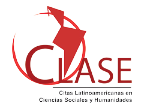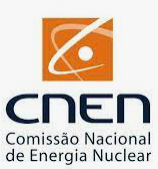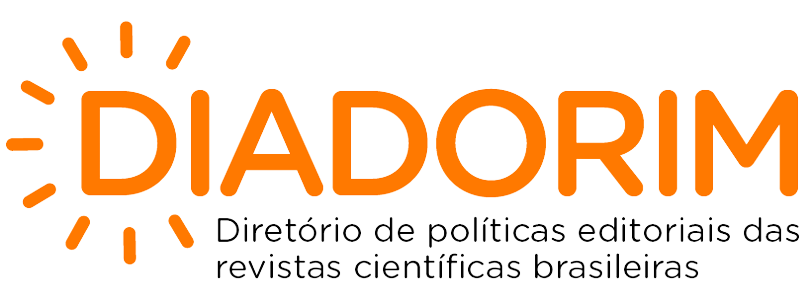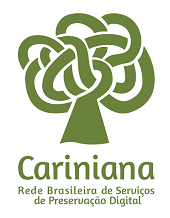Autoethnography in educational research history challenge autonarrado
DOI:
https://doi.org/10.5433/2238-3018.2015v21n2p343Keywords:
Autoethnography. History Education. Historical Learning.Abstract
Integrating autoethnography as research methodology, and research in History Education in the field of epistemological and empirical knowledge, is the challenge that this text presents. From the perspective of researcher and subject inserted in the research context, I bring here the approach that is being developed in my dissertation for Master's Degree in Science Education, so that the methods cross each other, through the analyzes from the context of where research is being developed, from students observations, their narratives and my self-narratives that carry reflections on my practice, everyday school life and the influences that affects on the subjects.Downloads
Download data is not yet available.
References
AZAMBUJA, L. de. “Fado tropical”: protonarrativas de jovens alunos brasileiros e portugueses, escritas a partir das leituras e escutas de uma canção “engajada”. X Encontro estadual de História – O Brasil no Sul: cruzando fronteiras entre o regional e o nacional – ANPUHRS, 2010. Disponível em: http://www.eeh2010.anpuhrs.org.br/resources/anais/9/1278260483_ARQUIVO_ANPUHTEXTO9.pdf . Último acesso em 26/07/2014.
BRASIL, Instituto Brasileiro de Geografia e Estatísticas - Censo 2010. Disponível em: http://www.cidades.ibge.gov.br/xtras/perfil.php?lang=&codmun=431342&search =rio-grande-do-sul|novo-machado Último acesso em 10/07/2014
CHARTIER, R. A história ou a leitura do tempo. Trad. Cristina Antunes. 2 ed. Belo Horizonte: Autêntica, 2010.
DAYRELL, J. O jovem como sujeio social. Revista Brasileira de Educação. n. 24, Set/Out/Nov/Dez 2003. Disponível em: http://www.scielo.br/pdf/rbedu/n24/n24a04.pdf Último acesso em 10/07/2014
FERNANDES, L. Z. A reconstrução de aulas de História na perspectiva da Educação Histórica: da aula oficina à unidade temática investigativa. Disponível em: http://www.diaadiaeducacao.pr.gov.br/portals/pde/arquivos/158-4.pdf . Último acesso em 26/07/2014.
LOURENÇATO, L. C. A consciência histórica dos jovens-alunos o ensino médio: uma investigação com a metodologia da Educação Histórica. Dissertação de Mestrado em Educação da Universidade Estadual de Londrina – UEL – Londrina, 2012.
MONTERO-SEIBURTH, M. La Auto etnografia como uma Estrategia para la transformación de la Homogeneidad a favor de la Diversidad Individual em la Escuela. Disponível em http://www.uned.es/congreso-inter-educacionintercultural/Grupo_discusion_1/74.pdf. Último acesso em 05/07/2014.
RÜSEN, J. O desenvolvimento da competência narrativa na aprendizagem histórica: uma hipótese ontogenética relativa a consciência moral. In: SCHMIDT, M. A.; BARCA, I.; MARTINS, E. de R. (Org.). Jörn Rüsen e o ensino de História. Curitiba: UFPR, 2010. p. 51–77.
RÜSEN, J. Razão Histórica: teoria da história: os fundamentos da ciência histórica. Trad. Estevão Rezende Martins. Brasília: UNB, 2010.
SANTOS, R. C. P. A significância do passado para professores de história. Tese apresentada ao Curso de Pós-Graduação em Educação, Setor de Educação, Universidade Federal do Paraná. Curitiba, 2013
SANTOS, R. C. P. Significância histórica, conceito de passado, professores de história e livro didático. Anais Eletrônicos do IX Encontro Nacional dos Pesquisadores do Ensino de História. Florianópolis 2011.
SCHMIDT, M. A. et al. Significados do pensamento de Jörn Rüsen para a investigações na área da educação histórica. In: SCHMIDT, Maria Auxiliadora; BARCA, Isabel; MARTINS, Estevão de Rezende (Org.). Jörn Rüsen e o ensino de História. Curitiba: UFPR, 2010. p. 11 – 21.
SCHMIDT, M. A. Cognição histórica situada: que aprendizagem é esta? Anais XXV Simpósio Nacional de História. Fortaleza, 2009. Disponível em http://anpuh.org/anais/?p=17085
SCHMIDT, M. A.; BARCA, I. (Org.). Aprender História: perspectivas da educação histórica. Ijuí: UNIJUI, 2009.
SCHMIDT, M. A.; BARCA, I.; MARTINS, E. de R. (Org.). Jörn Rüsen e o ensino de História. Curitiba: UFPR, 2010.
SRIBANO, A.; DE SENA, A. Construcción de conocimiento em Latinoamérica: algunas reflexiones desde la auto-etnografía como estratégia de investigación. Cinta Moebio 34: p. 1 – 15. Disponível em http://www.moebio.uchile.cl/34/scribano.html
BRASIL, Instituto Brasileiro de Geografia e Estatísticas - Censo 2010. Disponível em: http://www.cidades.ibge.gov.br/xtras/perfil.php?lang=&codmun=431342&search =rio-grande-do-sul|novo-machado Último acesso em 10/07/2014
CHARTIER, R. A história ou a leitura do tempo. Trad. Cristina Antunes. 2 ed. Belo Horizonte: Autêntica, 2010.
DAYRELL, J. O jovem como sujeio social. Revista Brasileira de Educação. n. 24, Set/Out/Nov/Dez 2003. Disponível em: http://www.scielo.br/pdf/rbedu/n24/n24a04.pdf Último acesso em 10/07/2014
FERNANDES, L. Z. A reconstrução de aulas de História na perspectiva da Educação Histórica: da aula oficina à unidade temática investigativa. Disponível em: http://www.diaadiaeducacao.pr.gov.br/portals/pde/arquivos/158-4.pdf . Último acesso em 26/07/2014.
LOURENÇATO, L. C. A consciência histórica dos jovens-alunos o ensino médio: uma investigação com a metodologia da Educação Histórica. Dissertação de Mestrado em Educação da Universidade Estadual de Londrina – UEL – Londrina, 2012.
MONTERO-SEIBURTH, M. La Auto etnografia como uma Estrategia para la transformación de la Homogeneidad a favor de la Diversidad Individual em la Escuela. Disponível em http://www.uned.es/congreso-inter-educacionintercultural/Grupo_discusion_1/74.pdf. Último acesso em 05/07/2014.
RÜSEN, J. O desenvolvimento da competência narrativa na aprendizagem histórica: uma hipótese ontogenética relativa a consciência moral. In: SCHMIDT, M. A.; BARCA, I.; MARTINS, E. de R. (Org.). Jörn Rüsen e o ensino de História. Curitiba: UFPR, 2010. p. 51–77.
RÜSEN, J. Razão Histórica: teoria da história: os fundamentos da ciência histórica. Trad. Estevão Rezende Martins. Brasília: UNB, 2010.
SANTOS, R. C. P. A significância do passado para professores de história. Tese apresentada ao Curso de Pós-Graduação em Educação, Setor de Educação, Universidade Federal do Paraná. Curitiba, 2013
SANTOS, R. C. P. Significância histórica, conceito de passado, professores de história e livro didático. Anais Eletrônicos do IX Encontro Nacional dos Pesquisadores do Ensino de História. Florianópolis 2011.
SCHMIDT, M. A. et al. Significados do pensamento de Jörn Rüsen para a investigações na área da educação histórica. In: SCHMIDT, Maria Auxiliadora; BARCA, Isabel; MARTINS, Estevão de Rezende (Org.). Jörn Rüsen e o ensino de História. Curitiba: UFPR, 2010. p. 11 – 21.
SCHMIDT, M. A. Cognição histórica situada: que aprendizagem é esta? Anais XXV Simpósio Nacional de História. Fortaleza, 2009. Disponível em http://anpuh.org/anais/?p=17085
SCHMIDT, M. A.; BARCA, I. (Org.). Aprender História: perspectivas da educação histórica. Ijuí: UNIJUI, 2009.
SCHMIDT, M. A.; BARCA, I.; MARTINS, E. de R. (Org.). Jörn Rüsen e o ensino de História. Curitiba: UFPR, 2010.
SRIBANO, A.; DE SENA, A. Construcción de conocimiento em Latinoamérica: algunas reflexiones desde la auto-etnografía como estratégia de investigación. Cinta Moebio 34: p. 1 – 15. Disponível em http://www.moebio.uchile.cl/34/scribano.html
Downloads
Published
2015-09-02
How to Cite
Rodrigues, L. S., & González, F. J. (2015). Autoethnography in educational research history challenge autonarrado. História & Ensino, 21(2), 343–361. https://doi.org/10.5433/2238-3018.2015v21n2p343
Issue
Section
Artigos
License
História & Ensino adota a licença CC-BY esta licença permite que os reutilizadores distribuam, remixem, adaptem e criem a partir do material em qualquer meio ou formato, desde que a atribuição seja dada ao criador. A licença permite o uso comercial.














